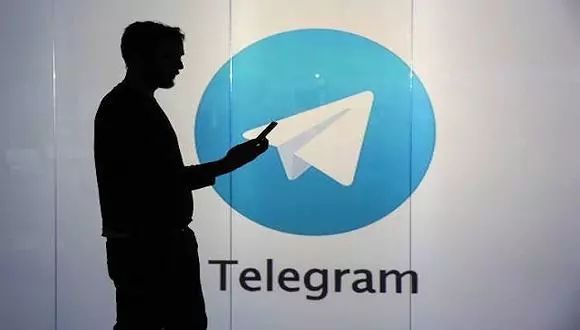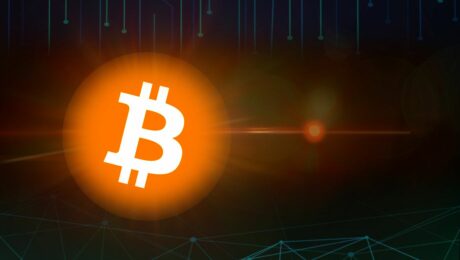The court acquiesced that Gram tokens are securities? Telegram's fight against regulation is coming to an end

Source: Blockchain Outpost , Translation: Luo Yuanhang
Introduction: In the event that the parties to the sale of digital assets have not been accused of fraud, the federal court for the first time provides the parties with the opportunity to consider whether the digital assets under which the purchase agreement constitutes an "investment contract" should be considered securities Defend the situation. The Telegram and SEC lawsuit will be one of the most important events in the history of cryptocurrency regulation.
How do entrepreneurs create a new, blockchain-based decentralized ecosystem without breaking the law? The lawsuit between the well-known instant messaging platform Telegram and the US Securities and Exchange Commission tells us that this is not easy.
In 2018, brothers Pavel Durov and Nicolai Durov, the founders of Telegram Messenger, proposed a blockchain network called TON, which will be integrated with Messenger. Messenger is very popular in the blockchain community and the crypto community, and this combination seems to come naturally. They have raised $ 1.7 billion from some senior investors by selling "GRAM" digital tokens. These funds are intended to be used to sponsor the operational development of the TON blockchain. According to the terms of sale, when the TON blockchain goes online, investors will receive their own GRAM tokens.
- Benefits escalate again! Babbitt Industry Orientation Starts Knowledge Officer Program
- The plunge was caused by Binance shorting after losing coins? Let the data on the chain tell you the truth
- Data: Bitcoin investment traffic is expected to exceed Visa after next halving
However, things did not go according to plan.
On October 11, 2019, the U.S. Securities and Exchange Commission (SEC) requires the provision of a temporary restraining order (TRO) on Telegram and TON Issuer United Corporation (hereinafter collectively referred to as "Telegram") to prohibit them from offering or selling "GRAM" , Deliver or distribute to any person or entity. The SEC states that Telegrams plans to "flood the billions of dollars of GRAM in the U.S. market by issuing unregistered securities." The SEC warned: "Without a legal registration statement, Telegram's planned issuance would violate federal securities laws and violate the investor's ability to obtain information in a registered offering." Restriction order, GRAM token distribution did not proceed as planned.
However, temporary restraining orders are only expedient.
On February 18, 2020, everyone focused on the Southern District Court of New York. The court held a hearing to hear the SEC and Telegram's pending injunction application from the SEC and a summary trial motion from both parties. The hearing largely revolved around whether the digital asset GRAM was "securities" and whether it was still securities after the TON blockchain was launched.
Because the case brings brand new problems, the judgment will have a profound impact on the entire blockchain industry and more.
At the hearing, Telegram attorney Alexander Drylewski said that the SEC's Howey test is not applicable to digital assets unless a commitment to manage and supervise these assets means that Gram will no longer be a security when the TON blockchain is launched. A federal judge in the United States said the SEC should not be "labeled" when deciding whether Telegram has issued illegal securities. In the end, Judge Castel retained the SEC's preliminary TON ban on Telegram and assured Telegram's lawyer Drylewski that the case would be judged by April 30.
The beginning and end of the event
According to the claims of the parties, the relevant facts are as follows:
In 2013, the brothers Pavel Durov and Nicolai Durov jointly launched Messenger, a free application that allows users to use text chat or telephone communication. In 2018, at the height of the initial coin offering (ICO) boom, Telegram decided to sell "GRAM" to some senior investors to raise funds to launch the TON blockchain project. According to the agreement, the GRAM purchased by investors will be delivered when the TON blockchain is launched, no later than October 31, 2019.
Telegram has conducted two rounds of fundraising, raising more than $ 1.7 billion through a total of 171 investors, including $ 424.5 million from 39 U.S. national investors. Investors signed a purchase agreement with Telegram, according to which Telegram promised to distribute 2.9 billion GRAM (total circulation of 5 billion) for investors by October 31, 2019 (the date when the TON blockchain goes live). ).
The only substantial difference in the terms of the two rounds of fundraising purchase agreement is the lock-up clause of the token and the price of GRAM. Investors participating in the first round of fundraising are not allowed to sell immediately after receiving tokens. This part of the token will be released at a rate of 25% every 3, 6, 12, 18 months after the TON blockchain is launched, and this part of the GRAM released will allow investors to sell. Investors participating in the second round of fundraising have no such restrictions, and they can sell immediately after receiving the tokens. The first round of GRAM price was $ 0.37 each and the second round was $ 1.33 each. Based on the amount of publicly available GRAM and the total amount Telegram is expected to provide at launch, Telegram estimates that the price of GRAM on the open market after the TON blockchain release should be $ 3.62 each. Both the buyer and the seller have indisputably believed that this is an “investment contract” signed with the commercial activities formed by the purchase agreement, and therefore GRAM is “securities”.
Telegram said in its material that they are raising funds to build a huge blockchain-based network that will support a new cryptocurrency. The information also pointed out that Telegram will serve as the launching platform of the TON blockchain, because Telegram will integrate the TON blockchain into Messenger, and use Telegram's huge user base and developed ecosystem to develop the TON blockchain community. However, Telegram later claimed that the TON blockchain would not be integrated into Messenger.
Views of both parties
The SEC has made two arguments in general.
First, Telegram's offer to institutional investors constitutes an unregistered offer and an unregistered sale of securities. The SEC claims that the well-known "Howe Test," which provides a standard for determining whether a particular transaction constitutes a securities offering, has been in effect since the effective date of the GRAM purchase agreement. The SEC also stated that even if the Howe test is performed at the time of the release of the TON blockchain, GRAM itself will still be considered an investment contract (and therefore should be considered a security).
Second, Telegram has made and will continue to make a public offering of GRAM, and any exemptions will not apply to that release. The SEC claims that Telegram has taken action and attempted to complete the public offering of GRAM, with the initial investor acting only as an intermediary or distributor of GRAM's public offering.
Telegram retorts: GRAM itself is not a security. Even if the issue of GRAM's security identification is discussed, it must be discussed when the TON blockchain is started, that is, when they will be used, and it cannot be identified before then. At the same time, GRAM will not meet the standard that constitutes an investment contract in the Howe test when the TON blockchain is launched, which means that GRAM is not a security. They believe that after the launch of the TON blockchain, GRAM buyers will not expect to make a profit based on other people's management efforts on GRAM, because Telegram has denied any commitment to work on GRAM's future price, and in addition, any No effort commitment is required in the contract.
Telegram also claims that due to the decentralized nature of the TON blockchain network, GRAM does not represent a regular business after its release.
Andrew Hinkes is an attorney at Carlton Fields and a professor at New York University Law School. He stated: "The SEC has acknowledged that Bitcoin and Ethereum are not securities. Therefore, if the TON blockchain can be sufficiently decentralized (regardless of the definition of the description), the court should similarly Asset GRAM is considered a commodity. However, such a conclusion can only be reached after a fact-finding investigation based on evidence. "
- Whether investment contracts are provided in securities transactions;
- Whether the main body of the investment contract (GRAM) is a commodity that can be sold through ordinary commercial transactions or other types of assets
Although the chamber analyzed GRAM, the final conclusions were not stated in the statement.
Both the Digital Commerce Association and the Blockchain Association have asked courts to consider whether SEC regulations are an appropriate framework for regulating third-party transactions, including GRAM. Both statements show in different ways that GRAM is more like a commodity than a security.
The court may have acquiesced to GRAM being securities?
This is a very important case for companies adopting blockchain technology in the United States. In the event that the parties to the sale of digital assets have not been accused of fraud, it is the first time that a federal court has provided an opportunity for the parties to consider whether the digital assets under which a purchase agreement that constitutes an "investment contract" should be considered a security Defend.
Lewis Cohen is the founder of DLx Law, a company focused on blockchain and cryptocurrency. Lewis Cohen wrote a groundbreaking article on the subject called "Is it illegal: an investigation of Broadway tickets and blockchain tokens." Speaking of the Telegram case, Cohen explained: "It is recognized that GRAM itself is only an example of computer code, has no financial terms or other inherent characteristics, and is not to be considered for any reason other than the fact that it is sold under a purchase agreement 'Securities'. If GRAM is classified as a security, the court needs to attribute the proceeds of the "investment contract" represented by the purchase agreement to GRAM. This is a fictitious judicial fact, which is a crude form of justice because the buyer and seller No agreement was reached on this. "
Although many may agree that federal securities laws apply in some ways to transactions involving GRAM, it seems that the biggest concern is that the SEC defines GRAM itself as a "secure" position. If the court agrees to define GRAM as securities, transactions between secondary non-issuers must comply with securities laws. In addition, if GRAM is not defined as a security, applying the Howe Test to the terms of every transaction that GRAM sells and resells will become more difficult and cumbersome (or even impossible).
Therefore, the court may fictionally assert that GRAM is a security, which can achieve the SEC's goal of protecting investors. But this extreme logic can lead to bad results, as this decision places a regulatory burden on all parties seeking to use GRAM.
As the court has granted the SEC the right to issue a temporary restraining order against Telegram, for Telegram, the court may have acquiesced to GRAM being a security. Therefore, the work done by Telegram as defendant will be put to naught. The defendant sold GRAM to the first investors in the form of extremely high discounts and short-term lock-up periods. Defendant Telegram orchestrated the transaction, making senior investors an open channel to bring GRAM to the secondary market. In fact, the defendant seems to have determined that investors will sell (or even "dump") GRAM tokens to the public at all costs.
Concluding remarks
The court may find that when signing the purchase agreement, GRAM is not a security, but when the TON blockchain is launched, it should be treated as a security when it is distributed to those senior investors, especially when the TON blockchain is also Not considered a case of "fully decentralized". Of course, "fully decentralized" is a vague concept put forward by SEC staff and has not been mentioned in any judicial decision. If the court makes such a decision, the court may approve the SEC's injunction against Telegram.
On the other hand, the court can rule based on the non-party statement of opinion submitted by the Digital Chamber of Commerce. Although the purchase agreements are investment contracts, the subject GRAM of these agreements is not securities and has never been. With such a ruling, the court will still find that certain GRAM secondary transactions (such as resale transactions by investors who originally purchased GRAM from Telegram) are also investment contracts, and these transactions can be tested by Howe to determine whether they are Comply with securities laws. Since resale transactions will not be limited to credit investors, these resale transactions will need to be registered with the SEC, which will be a way to protect investors. This implies the conclusion that the distribution of GRAM to initial investors is actually the distribution of GRAM that is not registered by the SEC to the public.
We may need another case to get guidance on this issue. But the court's decision may also be brightening.
We will continue to update Blocking; if you have any questions or suggestions, please contact us!
Was this article helpful?
93 out of 132 found this helpful
Related articles
- Lawyer's interpretation | Blockchain's application in supply chain finance faces three major legal risks
- In the era of "Black Swans", learn to use blockchain thinking to improve anti-fragility
- SERO destroys half of the unmined tokens, and the public chain also changes the total amount like the exchange?
- Israeli Attorney General: Israeli banks should not refuse to serve cryptocurrency companies
- Large-scale technology companies collectively enter the financial sector, EU securities regulators issue risk warnings
- Stanford Blockchain Conference Day1: New Attack Can Crack Anonymity of Zcash or Monero?
- There is a huge difference between rich and poor. What is the distribution of Bitcoin wealth?






